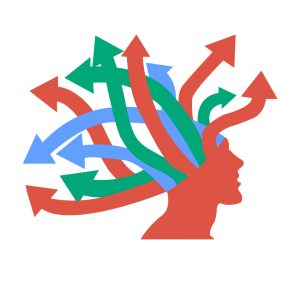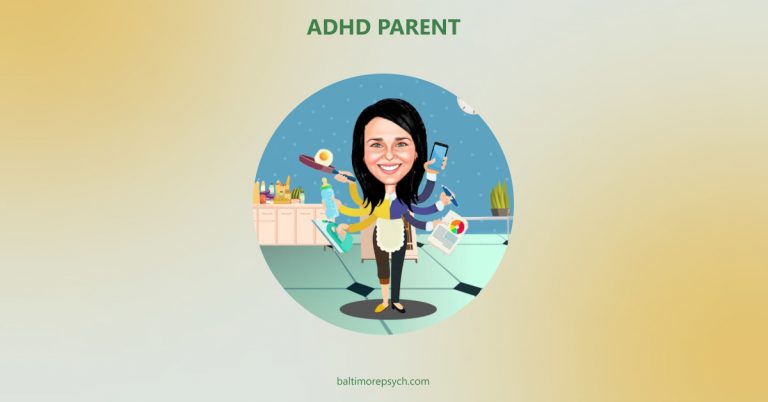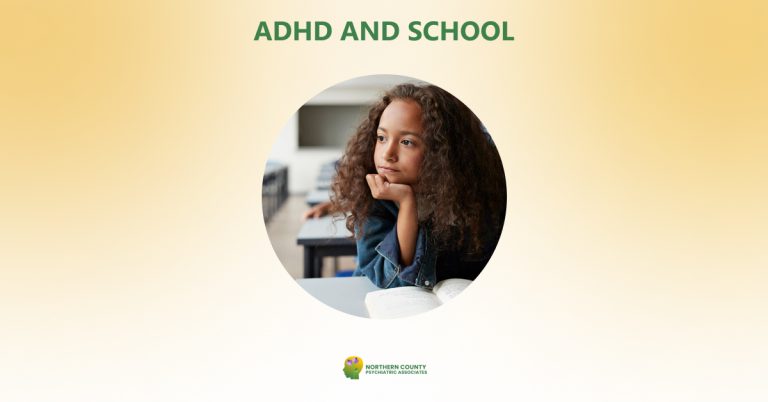There has been controversy about the use of medications to treat both children and adults with Attention Deficit Disorder. There have been articles debating whether Ritalin is over or under prescribed.When people ask me about this, I tell them that I can only answer for the children and adults that I have evaluated or treated.
Yes, there probably are some individuals who have received medication when some other treatment might have been better. On the other hand, there are probably others who were not been diagnosed for years and could have benefited from medication. Finally, even if someone has attention deficit disorder (ADHD) and is on medication, is it the best medication, dosage and timing?
Medication can be quite helpful if prescribed in the right context. First the individual needs a thorough evaluation. If medication is prescribed, it should be followed closely. Small changes in timing and size of doses can make a difference.

Although Ritalin is the best known medication for ADHD, there are a number of other useful medications. For individuals who have an incomplete response to one medication, the doctor can often work with the patient to find another medication or combination that does control symptoms. Some of the secondary medications may require closer monitoring during the initial phase of treatment.
Sometimes medication failure is due to lack of communication between patient and doctor. (and sometimes school) The doctor, patient and family should be clear about exactly which symptoms they expect the medication to treat. Patients should ask questions. They should inform the doctor if there are side effects or if the medication does not seem to be working.
If medication is still not working as expected, it may be time to re-evaluate the diagnosis. Individuals with ADHD may also have other disorders at the same time. Anxiety and depression may superficially resemble ADHD. Occasionally a medical illness may masquerade as a psychiatric condition.
Medication can only take the individual part of the way to recovery. Therapy, community support, coaching and the individuals own determination are important parts of treatment.
Often, it is the small considerations that make life easier or much more difficult for such a family. At the end of this article, I will give a few links to web sites and listserves which allow individuals to share their own experiences of “what works.” However, one should remember that each individual is unique (this is doubly true for individuals with ADHD) and each family needs to work out its own coping strategies.
What is ADHD and how does it show itself in elementary-school-aged children? The DSM-IV, the diagnostic manual of the American Psychiatric Association, suggests that the behaviors fall into three general categories. These are impulsivity, inattentiveness, and physical hyperactivity. Not all individuals with ADHD have the hyperactive component.
Because other conditions, such as anxiety and learning disabilities, can mimic ADHD, one must approach the diagnosis carefully.
Accepting the Diagnosis
Many families go through a period of uncertainty during the time leading up to the eventual diagnosis. The experience of “getting diagnosed” is powerful and can either be a blessed relief or a crushing blow. Many parents experience this as a loss and need to go through a process of mourning so that they can eventually accept their child as he or she is. The classic stages of mourning, denial, anger, grief and acceptance all apply here. Parents and teachers may have different perspectives on this phase of the process of acceptance. The professionals need to be patient with parents as they come to terms with their child’s condition. They should not be too quick to pathologize parents who become emotional or angry in meetings.
Some of the nicest, most conscientious parents may become angry and tearful in meetings. Parents and children may go through repeated episodes of mourning as they experience the effects of the ADHD in different settings and at different ages.
Community support is important during and after the time of the initial diagnosis. It is easy for a family to become overworked or overwhelmed. At such a point, the family might be tempted to withdraw into itself just when support is most needed. Extended family can be an important source of support, but can sometimes also be a source of tension. Parents often feel that extended family members do not understand the situation. Educating grandparents and extended family can take time.
Behavioral Planning
In the home, structure and behavioral planning are often helpful. One has to tread a careful line so that one does not squelch the spontaneous child too much. Complex behavioral plans may look good on paper, but often do not last long in the rush of the real world. The key components to a good behavior plan are simplicity, consistency and frequent rewards. A weekly reward does not mean much to an impulsive child with a short attention span. If the child chooses to work toward a larger reward, he should receive tokens as incremental steps toward the goal.
The plan should reward incremental improvements in behavior. Any plan that expects an immediate cessation of undesirable behavior is doomed. The good plan is set up so that the child is able to achieve some measure of incremental success the first day. Parents are often tempted to use corporal punishment because they feel that nothing less will get a child’s attention.
Actually, one should especially avoid such punishment in ADHD children because they are impulsive and more likely to imitate a violent act. One must be extra careful to avoid teaching them to resolve conflicts with violence. Parents must also walk the tightrope of advocating for appropriate accommodations yet also teaching their child to have a sense of personal responsibility for their actions.
Childproofing
In many ADHD children, particularly the hyperactive ones, there can be serious safety considerations. Impulsivity is a common feature of ADHD and it may manifest itself in climbing tall trees, getting into medicine cabinets, and playing with power tools. Their motor hyperactivity makes them quite fast, and they can be into tremendous trouble in the time it takes a parent to load laundry into the washing machine.
Some ADHD children have coordination and balance disorders, but do not have the judgement to accommodate to their difficulties. Many people think of childproofing as only for families with babies. All families should probably childproof to some extent until everyone goes to college. This is especially important for families affected by ADHD. Many family crises could be minimized if valuable breakable objects were locked safely away.
Certain stain-repellant paints, vinyl wallpaper, and carpet treatments make accidents less costly. Linoleum with the pattern printed through the entire thickness of the material is less likely to show scratches. Sometimes one can plan indoor traffic patterns to keep muddy feet off certain surfaces. Although a family may have their own house well childproofed, the grandparents may not have their breakables out of the way. It is often best to discuss childproofing plans before the visit.
If it is not possible to get the breakables out of the way, bring your own games and toys, or plan to play outside as much as possible. Dealing with emergency rooms. Children with ADHD are at increased incidence of injuries and fractures. ER personnel refer to individuals who turn up repeatedly as “frequent fliers.” If you have an accident-prone child, have an emergency plan. One parent taking an injured child and two other active children to an emergency room can itself be dangerous. Are there neighbors who could watch the other kids while you seek medical care? Ask your pediatrician to recommend the best emergency room. Some emergency rooms are better than others at handling injured children.
If ER personnel are especially nice, write a nice thank-you letter to the administrator of the ER. Same to ambulance crew etc. Multiple or odd fractures can raise the issue of child abuse. Being investigated for child abuse can be humiliating and adds to the stress of dealing with an injured child. Discuss this in advance with your pediatrician and make sure the pediatrician calls the ER to let them know you are on your way. Insist that the emergency room physicians contact your pediatrician so that he or she can discuss the case with them.
If you do get investigated, try to be calm. Have a spouse or close friend with you for emotional support.
Medication
Medication is often an important part of the comprehensive treatment of an individual with ADHD. This article will not focus on the variety of medications available today. However, I do want to cover a few important points. Ritalin is the most commonly prescribed medication for ADHD.
It is important to remember that it is a short-acting drug and only lasts 2.5 to 4 hours. Often children are given a morning dose at 7AM before leaving home and do not get their second dose until Noon. If this is how your child’s medication is scheduled, check to make sure that he is doing well in the two hours before lunch. Some children may experience a rebound effect as the medication wears off.
If there is a problem during this period, talk to your child’s doctor about adjusting the timing of the medication doses or switching to a different medication. Sometimes a small change in the timing of Ritalin dosing can make a big difference. There are a number of medications that can be helpful for ADHD if the stimulants are not sufficient.
If the current regimen is not adequate, a comprehensive psychiatric evaluation may clarify the roles of both medication and other interventions. Part of dealing with medication is dealing with the issue of stigma. Some children may think that only the “bad” kids go to the nurse to get stimulants. Other children enjoy their daily visits to the nurse. When students line up to see the nurse, the students sometimes figure out who is getting the Ritalin.
For some sensitive children, this may be a reason to consider other medications. In other cases, some general classroom education about ADHD and medications may suffice.
Siblings
Siblings may feel ignored when parents are focusing on the ADHD child. It is important to keep the needs of the other siblings in mind. It is useful to allow the siblings to vent their feelings privately. They may also feel less of a sense of injustice if they are educated about ADHD. There are several good books to read with the siblings.
They should also be counseled about how much they can tell their friends about their ADHD sibling. Confidentiality and disclosure Whom do you tell about the diagnosis and condition? This is a judgement call. Often it is best to consult the child about this. Many times, it is better to allow friends and their parents to get to know your child before telling them. That way, they know your child as a person before they can stereotype him.
How much do you tell your child’s school? (before and after admission) This, too is a judgement call. Generally it is a good idea to let the school know if your child has any special needs. However, this can be a particularly thorny issue if your child is applying to a competitive private school. Some schools are more understanding about ADHD than others. If 100 children are applying for ten slots, a few schools might not spend the time to understand your child’s unique situation. Talk to other parents and get a feel for how the school personnel deal with these issues. If you know the parent of an ADHD child who attends the school, they might be able to give you advice.
If your child is currently attending a particular school, one should be sure to tell the school nurse about any medications, even if they are given at home. Children do have accidents at school and the information should be available for emergencies. Advocating for Your Child’s Educational Needs When advocating for your child, try to start off with a positive attitude. Be aware of your child’s educational and legal rights, but do not start off by quoting the law to staff. For children in the public schools, there is specific, legally mandated system to help determine the child’s educational needs. If you feel that your child needs educational testing or special education resources, ask for an ARD meeting.
Often parents can assist the school in gathering information to determine whether the child needs testing or special help. If your child has a special educational plan (IEP), always review it carefully before the formal meeting. If possible, both parents should come to the meeting. If one parent is feeling angry or frustrated, try to have the calmer parent do the talking. If the special education process is confusing, you may seek out an educational advocate to come to the meeting with you.
If the school does the testing, you do not have to pay for it. You may obtain outside evaluations, at your own expense, to bring to the school meeting. If you have the time and energy, try to volunteer time for your child’s school. Volunteers can free up some of the teacher’s time. This may, indirectly, give her more time to focus on your child’s needs. This also gives the parent an opportunity to get to know the school environment and some of the child’s classmates.
Having a good knowledge of the functioning of your child’s school can help clear up potential misunderstandings. Some parents choose to arrange for private evaluations or tutoring. Speech therapy, occupational therapy and some other services may be covered by some insurance plans. Some companies have dependent medical care plans which allow the parent to put pre-tax money aside for medical and child care expenses. This can be used to cover certain kinds of assessments and treatments not covered by insurance or paid by the school.
Check with your employer or tax specialist. Many private schools have arrangements with tutors and speech therapists. In these cases, the parents usually pay for the services. In some situations, a child in a private school may qualify for free services funded by the public schools. In this case, the parent usually has to drive the child to a public school to get the services there.
Ultimately the most important thing is to instill in your child a positive self-esteem and an attitude of responsibility and mastery. The child should be encouraged to learn all he can about ADHD. At the same time, the child should take responsibility for his actions.
References
- You Mean I’m Not Lazy, Stupid or Crazy?
By Kelly and Ramundo
- Driven to Distraction by Hallowell and
Ratey
- The Hyperactive Child, Adolescent and
Adult Attention Deficit Disorder Through the Lifespan by Wender
- Attention Deficit Disorder, A
Different Perception by Hartmann
- ADHD in the Schools, Assessment and
Intervention Strategies by DuPaul and Stoner.
Written for Children
- Eagle Eyes (A child’s Guide to
Paying Attention) by Gehret
- Otto Learns About His Medication
by Galvin
- Distant Drums, Different Drummers
by Ingersol


